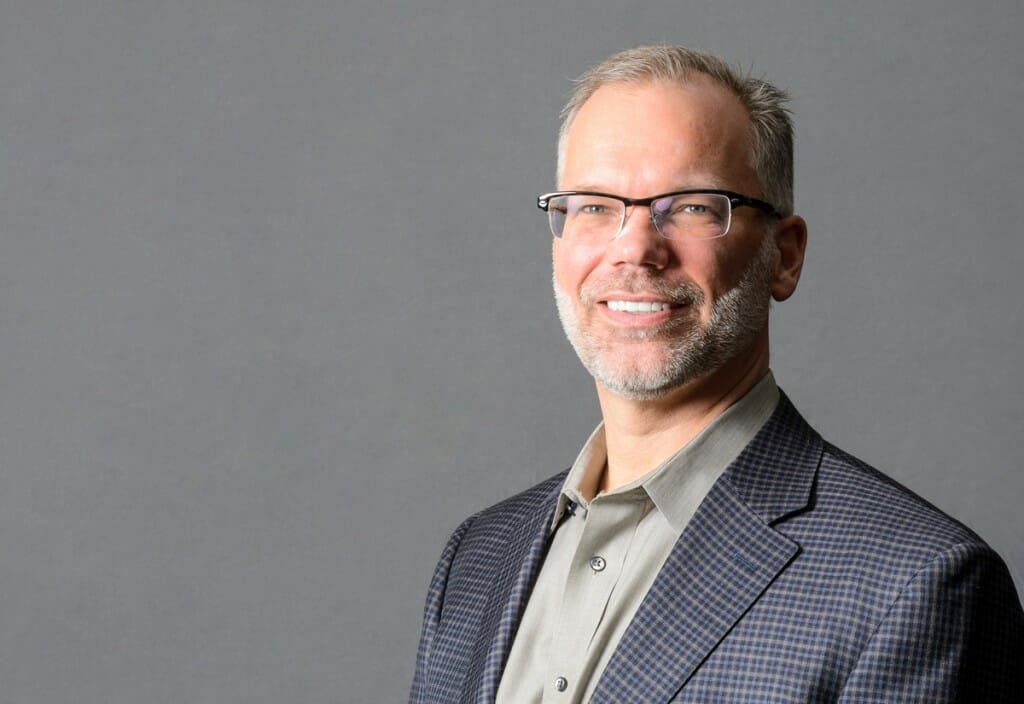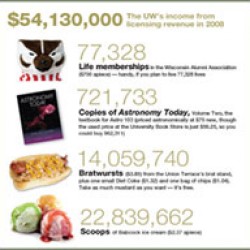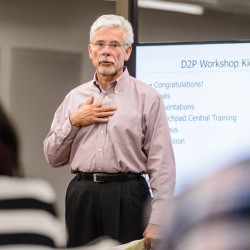Erik Iverson
Erik Iverson calls himself the consummate outsider: he is not a UW–Madison alumnus and he’s not from Wisconsin. But in 2016, he became the managing director for the Wisconsin Alumni Research Foundation (WARF), which helps UW researchers take their discoveries to the marketplace. Since then, Iverson has poured resources into startups, connected with powerful investors, and capitalized on the entrepreneurial spirit that he sees in Madison and throughout the state.
What does WARF’s partnership with the university look like on a day-to-day basis?
WARF doesn’t exist without the university. It’s walking the halls of the labs, and talking with a scientist to find out what exciting new inventions are going to happen. One of my roles is to talk with the chancellor, vice chancellors and deans of the schools about what their needs, pressures, and strategies are, and explore how could WARF best help them.
Last year the UW fell out of the nation’s top five universities for research expenditures, dropping from fourth to sixth. What is your take?
We can’t allow UW to fall from five, to six, to seven, to eight. It is a collective effort to figure out how the entire set of ingredients comes together in a recipe that continues to make this university top five. And again, that falls within the university’s leadership and their discussions with federal leadership, state leadership, alumni donors, WARF, the [UW] Foundation.
You’ve talked about partnering with other Wisconsin schools, such as Marquette and UW–Milwaukee, to develop technologies across the state. Why?
One could ask the question, why doesn’t [UW–Madison] talk with the folks at Stanford, or MIT, or Harvard, or the University of Washington, or UT–Austin and say, “We have some amazing computer science technologies. What do you have? Together, do we have something that we could really create a massive new company with?” And over time, there has been an interest in that, but nobody has really done it. It’s very complicated; it’s very political. And there are a lot of legal aspects that make it complicated. You have this very robust system all within the same state — why don’t we just start at home, first, and look at how we could do this within our own system and try and build technologies, businesses. and jobs within our own state? And is there a possibility to make this work and lead the way, nationally, looking at a new model of technology transfer across multiple schools versus just one?
You were in Seattle previously. What drew you to Wisconsin and to WARF?
[My wife and I] were walking around the Square in Madison before I had started here, and [she] felt the energy of the university. She saw entrepreneurism, she saw the arts community, she saw the athleticism, the younger population. … She turned to me and said, “This is what Seattle was when we moved there.” We have so much of an opportunity here. It’s really an exciting place to be.
Published in the Spring 2018 issue




Comments
No comments posted yet.